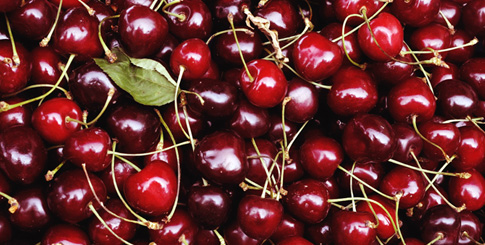Aside from pests and disease, “Labor and water from a production standpoint are key issues,” notes Jameson. Although water had been a critical issue in certain districts, last year’s wet winter helped. Regarding labor, the ability to hire returning workers who know the fruit and processes is a plus. “We’ve been fortunate to deal with the same people every year.”
Some Washington growers were not as lucky, and had cherries left hanging in trees due to a dearth of workers. “There were several million boxes that did not get harvested due to labor and market conditions,” admits DeHerrera.
FRESH FORUM
What changes do you see for grower-shippers in the next year? Five years down the road?James Michael, Washington State Fruit Commission
The oldest adage in the cherry industry is, “the only thing for sure we know about next season is that it will be different.”Dick Reiman, River City Produce Sales
I see steady product continuing and look forward to another great year, similar to what we had last year.Aaron DeHerrera, Rainier Fruit Company
Labor will continue to be our most difficult challenge now and in the future. People might not realize that every single piece of fruit we pack is picked by hand.Ray Norwood, Auvil Fruit Company, Inc.
I anticipate small growth in the Washington cherry crop in the next few years, with some of the newer varieties gaining more of a following.Scott Marboe, Oneonta Trading Corporation
Continued quality crops and consumer demand; newer varieties coming into production; and a new, more consumer-directed package.Mike Jameson, Morada Produce Company, L.P.
The volume in the state is getting bigger and bigger every year. We used to do 2 to 3 million cartons, and now we’re hovering close to 10 million. There are enough in the ground to keep up, we just need to focus on producing the quality fruit the market is looking for.
Bright Future
As one of the world’s largest cherry producing regions, the western United States has carved a dominant and delicious niche—but only for a few months. “Most products are year-round,” says Reiman, “but cherries are one of the few that still have a specific season.”
Luckily, demand and volume are clearly there. “Quality is key as we get more and more volume,” says Jameson, who sees the focus shifting to larger, firmer varieties that more easily maintain their quality.
Photo Courtesy of Auvil Fruit Company, Inc.



